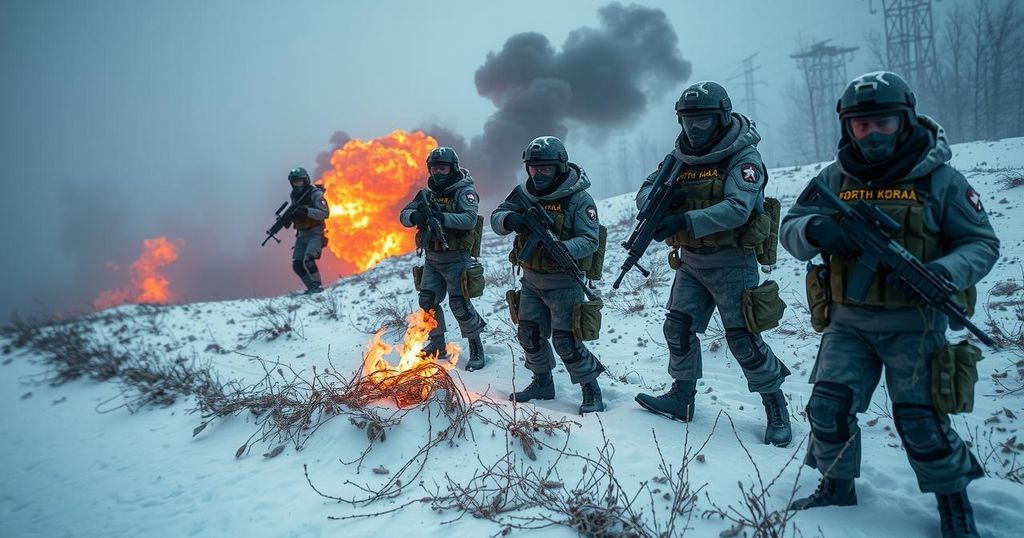North Korean Troops Involved in Fatal Friendly Fire Incident Against Russians

The article discusses recent developments in the Ukraine-Russia conflict, including friendly fire incidents involving North Korean soldiers killing Russian troops, significant casualties on the Russian side, and Ukraine’s military operations against Russian logistics. President Zelensky announced humanitarian aid to Syria, while Ukrainian forces have also disrupted Russian military supply chains through drone attacks and sabotage operations, stressing the conflict’s complexity and international ramifications.
Recent reports indicate significant casualties in the ongoing Ukraine-Russia conflict, particularly involving friendly fire incidents between North Korean and Russian troops. According to Ukrainian military intelligence, eight members of the Chechen Akhmat unit were accidentally killed by North Korean soldiers in Kursk due to communication difficulties arising from a language barrier. This incident highlights the complexities faced on the battlefield, which Ukrainian authorities assert have become increasingly problematic as over 10,000 North Korean troops have been deployed to assist Russia in its military efforts against Ukraine.
In another troubling development, Ukrainian military claims suggest that Russia has lost more than 1,000 soldiers in just one day as it continues its offensive in eastern Ukraine. Concurrently, Russian officials reported capturing control over certain villages in the Donetsk region, even as Ukrainian forces escalate their operations against Russian oil supply routes, including dismantling a train carrying fuel intended for Russian troops.
Moreover, reports of two Russian oil tankers splitting in half during storms in the Black Sea have raised safety concerns, prompting Ukrainian military officials to critique Russia for inadequate maritime safety protocols. Additionally, President Volodymyr Zelensky has announced Ukraine’s intention to provide humanitarian aid to Syria following the ongoing humanitarian crisis there.
Further illustrating the conflict’s breadth, Ukrainian forces have reportedly carried out drone strikes deep inside Russian territory, targeting military facilities and disrupting supply lines. These measures underscore Ukraine’s ongoing efforts to confront the Russian military and support international humanitarian initiatives amidst this extensive warfare.
The situation remains fluid, with both sides engaged in active military operations that resonate throughout the affected regions. With mounting casualties and shifting territorial control, the demand for enhanced military vigilance and humanitarian support continues to escalate.
The ongoing conflict between Ukraine and Russia has escalated since the annexation of Crimea in 2014, leading to significant military engagements and international responses. The involvement of North Korean forces on behalf of Russia introduces new dynamics to the battlefield, primarily through challenges related to communication and operational command. The presence of foreign troops complicates scenarios, as evidenced by recent friendly fire incidents, which can impact morale and operational strategies. Additionally, the humanitarian repercussions of the conflict have reached far beyond Ukraine, with contingent nations facing severe crises, such as Syria, which is highlighted by President Zelensky’s offer of humanitarian aid. The implications of military confrontations extend into broader geopolitical discussions, particularly regarding NATO, global security, and humanitarian efforts in war-affected regions.
In summary, the Ukraine-Russia conflict is marked by complex interactions, including friendly fire incidents involving North Korean troops and severe casualties on both sides. As military operations intensify, the humanitarian implications extend internationally, with calls for aid and assistance. The situation requires vigilant monitoring and strategic responses from both military and humanitarian organizations tasked with addressing the needs arising from this ongoing warfare.
Original Source: www.independent.co.uk






